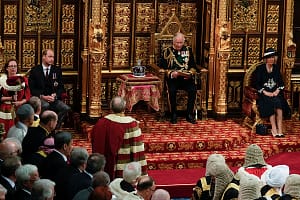Natural resources are a free gift of nature, the right of ownership of which leads to perverse outcomes, notably environmentally damaging over-exploitation of said resources and the trans-fer of wealth from the poor to the rich.
The economic value of any natural resource—such as land, water, minerals, fossil fuels, communications spectra, airport landing rights—derives entirely from society’s need of it and ownership adds not one penny to its intrinsic value which is instead extracted for the benefit of a tiny minority of UK citizens (and non-citizens).
Climate change, the rising costs of rents, mortgages, energy, water and food, and the wholesale extraction of wealth from our utilities all have a common feature—mismanagement of natural resources.
The Labour Land Campaign (LLC) advocates that the taxation system should be discouraging this type of unfair, economically counter-productive and environment-damaging private wealth extraction by redirecting the benefit into the public purse where it can be used to promote measures against climate change and lighten the burden on the taxpayers, workers and con-sumers who create the wealth in the first place.
Current taxes on earned income, trade and enterprise make goods and services more expensive whereas taxing unearned income derived from simply “owning” a gift of nature has no such adverse effect on the real economy and the lives of the great majority of citizens.
LLC Vice-Chair Heather Wetzel said, “We tax the wrong things. If the government reduced current taxes that damage our economy and instead collect-ed natural resource wealth to maintain and improve our public services, the economy would be more balanced and our natural resources could be used more effectively.
In this time of environmental collapse and economic hardship, it’s time to rethink the place of natural resource ownership in the economy and divert the attendant unearned income from the few to the many.
Unfortunately, in a week when our government is rowing back hard on all its relatively recent environmental commitments, we can’t hope that it will do anything to compromise its eternal commitment to furthering the interests of the rentier classes, especially landowners.
Taxes serve two purposes: to provide revenue for the operation of civilised society; and promote socially beneficial behaviour patterns or discourage undesirable ones. Taxing natural resource wealth ticks all these boxes. Of all such resources, the one which accounts for nearly 60% of UK net worth is the most important, the most obvious and the easiest place to start, land.






Leave a Comment